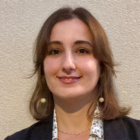Driving impact for persons with disabilities – From grantee to an accessibility partner
Sabancı Foundation carries out international work in order to follow global approaches in the field of civil society and philanthropy and to create dialogue opportunities between Turkey and other countries. In this regard, every year since 2013, the foundation has actively participated in the Zero Project Conference which aims to bring together innovative solutions and policies in the field of disability from different countries for a world without barriers. In cooperation with Ashoka Vienna, the Impact Transfer Program was also included in the Conference in 2018. The aim of the programme is to support innovative initiatives that have participated in the Zero Project Conference with training and mentors, and to ensure that they become scalable models ready to be adapted in different countries. The story of our 2019 and 2021 grantee, Association of People with Hearing Impairment of Turkey (TIED), begins right here.
In the 2017/18 Impact Transfer cycle, Gallaudet University’s VL2 Storybook project ‒ which aims to build bilingual resources to support literacy, and provide sign language exposure from infancy to childhood for people with hearing disabilities ‒ was supported for replication. As a partner of Zero Project, we brought the Gallaudet University and TIED together, to disseminate their impact and reach children with hearing disabilities in Turkey. With inspiration and guidance from Gallaudet University, the association prepared a project aiming to produce a visual storybook for pre-school children with hearing disabilities to enhance their level of knowledge, reading skills, language and cognitive development. The project was supported within our 2019 Grant Program. Through the project, deaf children’s Turkish and Turkish Sign Language knowledge, creativity, and future academic and social life have been supported.
During the project, signers followed trainings on children’s story narration, and two stories were created with American Sign Language (ASL), Turkish Sign Language (TSL), Turkish and English. Besides translation of an existing story ‒ the “Baobab”, created by Gallaudet University ‒ one authentic story from Turkish folk literature, called “Keloglan”, was rewritten and translated into TSL, ASL and English. The TSL versions of the “Baobab” and the “Keloglan” story were uploaded to the Gallaudet University’s app, while a separate application was also produced for “Keloglan” consisting of some vocabulary exercises for Turkish users. Stories have been downloaded more than 4,000 times so far and have been enthusiastically welcomed by children. The project also has had an impact in academia. In cooperation with Bogaziçi University, the partner of the project in Turkey, a scientific article was published in which the experiences of developing bilingual educational material were presented.
One year after the end of the project, we published a children’s book series called Papuduk to raise generations that love and protect animals and nature. At Sabancı Foundation, to promote inclusion and to leave no one behind, accessibility is always our focus in all of our work. In this regard, for Papuduk book’s accessibility, we prepared audio description versions for the pictures of the book and consulted TIED to create a TSL supported visual version of the story. Following this, a project was prepared including not only translation, but also preparation of sample lesson plans for teachers and technical developments of the existing application. The project was recently funded in our 2021 Grant Program and will end in July 2022.
From the beginning of the process in 2018 to today, we have learned a lot. First, TIED’s first project itself is proof of the importance of following international events and being open for innovation. Also, instead of transferring the solution directly, adding vocabulary exercises to the app, creating an additional story and localising the content made the solution more applicable in the Turkish context, which helps to ensure sustainability. We also witnessed that digital solutions can be more easily replicated and updated because of their flexible nature. At this point, this evolving and easy-to-use technology has shown us a way to integrate an inclusivity perspective into our other work as a foundation in our accessibility journey. This is why TIED is more than a grantee to us, they are our accessibility partner.
Authors


